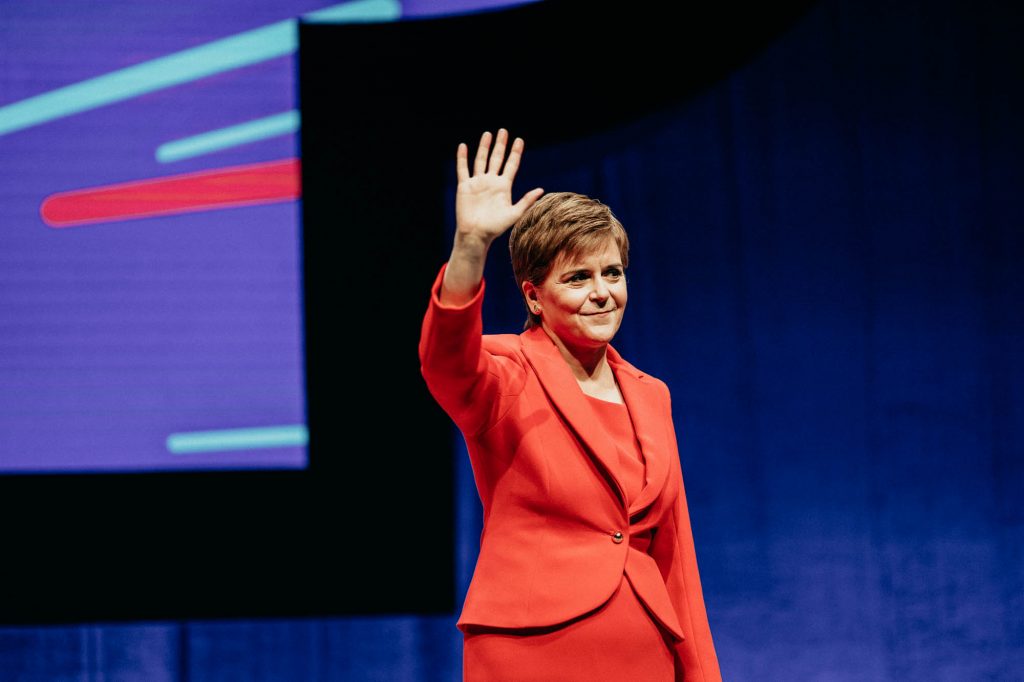SNPeaked? How far could they fall in 2024?

Recent revelations about SNP bookkeeping and motorhome buying have led to headlines about a sudden meltdown, but this is somewhat misleading. While their polling remained stable until late 2022 their position has looked increasingly precarious.
The problem the SNP have is actually similar to the Tories. In 2019 (and 2021, for the SNP) they won massive victories with an implausibly broad coalition of voters focused around a key issue. For the Tories it was Brexit, for the SNP it was independence. But if that issue fades then the fact your voter base is so diverse becomes a tricky problem. Try to appeal to one side of your coalition and you alienate the other.
Much like the Tories, the SNP reacted by trying to re-elevate their key issue. Rishi Sunak references Keir Starmer’s support for Jeremy Corbyn and a second Brexit referendum at most every PMQs. Nicola Sturgeon made more and more aggressive moves towards unilateral independence over time – culminating in a failed Supreme Court case trying to hold a fresh referendum without Westminster consent.
After a while your voters wonder what else you have to offer, particularly as other issues become more prominent (there’s a cost of living crisis, I’ve been told). Ever since that Supreme Court ruling the SNP have begun to unravel, with the leadership election highlighting just how wide the cracks in the coalition are. Kate Forbes’ views on abortion, gay marriage, and other issues are a stark illustration that, aside from wanting independence, even senior SNP figures don’t all agree on much.
The result is a steady decline in SNP support, predating the crisis headlines triggered by MSPs being arrested. That decline could well continue after those headlines fade, since the root cause is a lack of new justification for supporting the party in an era when independence isn’t imminently an option.
As Labour get closer and closer in the polls, it’s entirely possibly, likely even, than the SNP fall to second place at the next election. And FPTP has not been kind to second placed parties in Scotland, where winners have often swept the board. Certainly, winners have tended to win the popular vote by a fair margin, but winners have won big even on under 40% of the vote and sub-10% leads. The SNP also face unionist tactical voting, which gets a lot easier if Labour are viable across the nation/region (delete as preferred).
| Election | Winner Vote Share | Winner Seats | 2nd Place Vote Share | 2nd Place Seats |
| 2019 | 45% – SNP | 48 | 25% – Tories | 6 |
| 2017 | 37% – SNP | 35 | 28.5% – Tories | 13 |
| 2015 | 50% – SNP | 56 | 24% – Labour | 1 |
| 2010 | 42% – Labour | 41 | 20% – SNP* | 6 |
| 2005 | 39.5% – Labour | 41 | 22.5% – Lib Dems | 11 |
| 2001 | 44% – Labour | 56 | 20% – SNP* | 5 |
| 1997 | 45.5% – Labour | 56 | 22% – SNP* | 6 |
| 1992 | 39% – Labour | 49 | 25.5% – Tories | 11 |
| 1987 | 42.5% – Labour | 50 | 24% – Tories | 10 |
| 1983 | 35% – Labour | 41 | 28.5% – Tories | 21 |
| 1979 | 41.5% – Labour | 44 | 31.5% – Tories | 22 |
*(In these elections the Lib Dems got the 2nd most seats while the SNP got the 2nd most votes. SNP seat totals are shown)
How bad could it get? That’s the key question, mostly focused on for how big a mountain Labour have to climb in England to win a majority in 2024. But you can bet directly on the SNP’s fortunes, and I think there is value. William Hill, Skybet, and Ladbrokes will all give you 3/1 that the SNP fall below 20 seats. 16/1 is available if they fall below 10 seats (William Hill or Ladbrokes). Skybet also have 4/6 that they get beaten by the (likely somewhat resurgent) Liberal Democrats at the next election.
I suspect all of those are modest value, but I’ve had a wager on under 20 seats (at average odds of 5/1, before they changed). It’s not my expectation, but it’s more likely than those odds suggest.
Pip Moss
Pip Moss posts on Political Betting as Quincel. You can follow him on Twitter at @PipsFunFacts